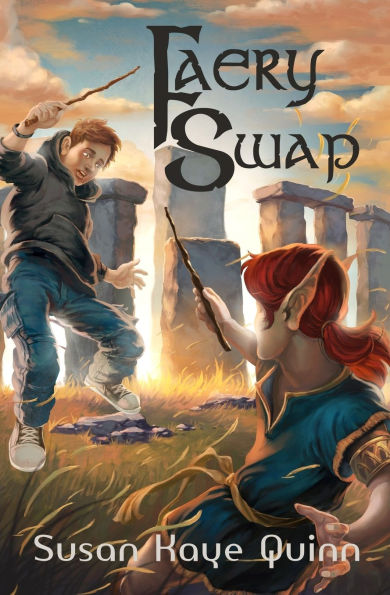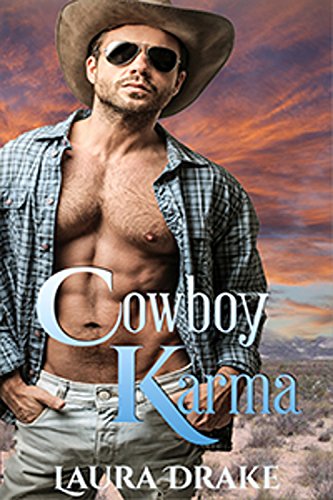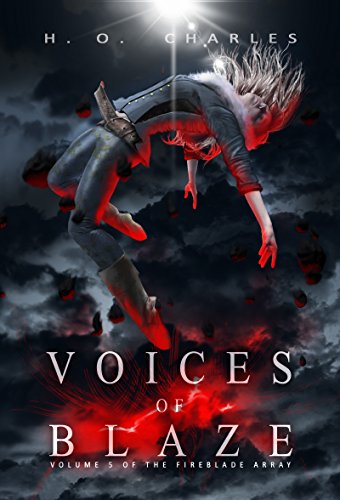What is a Novel? by Jina Bacarr
September 11, 2010 by A Slice of Orange in category Archives tagged as author, bird, Confessions of a Podcast Goddess, Italian, Italy, Jina Bacarr, novels, perfume, scent, Venice, writingA novel is like my friend, Uccello.
Writing is a solitary profession and taking a break from sitting at my computer is important to me. I like to walk. Every day I walk through a park on my way to the beach, smelling the flowers, enjoying the shade of the trees and listening to the birds singing.
One bird in particular captured my attention. He doesn’t sing better than the others, he’s not prettier, and he doesn’t fly in a soaring pattern. But we’ve formed a bond, Uccello and me.
I call him “uccello” (bird in Italian) because he reminds me of the birds singing outside my hotel window in Venice. I fell in love with the magical city with all its sights and smells when I spent time in Italy speaking and performing about Body & Eros at La Biennale dance festival.
Watch a short clip of the view from my window in Venice, Italy.
Seeing Uccello every day takes me back to Venice and reminds me of the evocative perfume I inhaled there.
I learned to recognize Uccello from the other birds, little things about the charcoal grey bird that caught my eye. He has a little white belly that wiggles when he preens himself like a de’ Medici grand duke and his chirping is short and musical like breathy notes on a flute. He follows me through the park, flitting from one perch to another, poking his head around to see if I’m dallying.
I’ve gotten to know his idiosyncrasies, like how he chirps twice when he sees me, then how he likes to show me what path to take by flying in front of me. The park has many winding pathways and I look forward to seeing where he’ll lead me on my walk each day.
To me, a novel is like Uccello. Something about it attracts your eye–it could be the title or the cover–you get closer, open up the book and it takes you on a journey. As you follow its winding paths, you breathe in its uniqueness. That’s part of the fun for me. I like to inhale the scent of the story.
It’s not something you can smell in a physical way, but it evokes an odoriferous response in you that makes you aware of the scents the author has created in their world, whether it’s fragrant roses, the salty sea, cinnamon, oil, pine cones, or the smell of sex.
The next time you read a novel, think about what you smell. It may surprise you.
I’m off to see Uccello.
Want to come along? It’s easy.
Open a novel and join us.
Best,
Jina
The Blonde Samurai: “She embraced the way of the warrior. Two swords. Two loves.â€
Jina Bacarr is also the author of The Blonde Geisha ,Cleopatra’s Perfume, Naughty Paris, Tokyo Rendezvous, a Spice Brief, and Spies, Lies & Naked Thighs
visit my website: http://www.jinabacarr.com/
Learning to Love the Writing Process
June 28, 2009 by A Slice of Orange in category Archives tagged as novels, writers, writing processWriting a book is not easy. If it were, everyone would do it.
It’s not like writing a term paper. Yes, it requires hard work and research, but the thing that makes a book special is the heart and soul the author puts into it. It really is like childbirth. There’s a lot of pain and sweat and maybe some cursing, and then finally a new project is brought into the world—a unique and wonderful project that is nothing like anyone else’s. Just like a baby.
When a writer first decides to write a book, most of the time he or she is not quite sure how to go about it. The non-writing part of the population figures you just need to sit down and put in some time and poof—a book is born (See term paper reference above). Yes, writing an entire book does take time. How much time? That depends on the writer. And you can speed up your writing time by accepting and loving your Process.
What is your Process? It is how you write your book. Not how I write my book—that’s my Process. You need to figure out your own process—what works for you that gets you from Page One to The End. And the best way to do that is to write a book, all the way through.
Every writer has his or her own process. I’ve written and published twelve books over the past ten years or so, and I still call up my friend when I get stuck. And I still get stuck at the same place in every book—between chapters five and nine—where I spend a long time banging my head against the wall and wondering if I will ever finish another book in my life…EVER. And you know what my friend says? “Oh, that’s just your process.â€
For some reason, knowing that this is my process immediately makes me feel better.
“You do this with every book,†she says.
I do?
“I’ve been studying your process. I’m trying to learn from it.â€
You are? Can you clue me in?
I have learned some things about my process over the years. There’s the chapter 5-9 problem. Usually when I’m in the middle of a frustrated, Tasmanian Devil spin, the realization that I am at the end of chapter six calms me down. Okay, this is what I always do. Grit teeth and tough it out.
Then there’s the fact that I am sort of an organized pantser. I’ve been selling on synopsis for about eight or nine years now. I write a synopsis and get approval from the publisher, and then I start writing the book. I write the first couple of chapters. Go back, change them. Decide no, that’s not where the story starts. Write a different beginning. Okay, this one might work. Write some more (usually just up to chapter 4 or so—don’t want to hit the No Man’s Land of Chapters 5-9 while still wrestling with the beginning). I might even write a third incarnation of the beginning of the book. Send to writing friends for review. Get comments. Maybe I hear a speaker or read a writing book that makes me reconsider the beginning. Maybe I try storyboarding, but something still isn’t right. In the end, nine times out of ten I will end up going back to my first version of the beginning of the book. Turns out that was the right place to start after all.
Once I have accepted the beginning few chapters, and I have wrestled with my chapter 5-9 issue, I usually get to the first love scene in the middle of the book—around chapter 10 or so. Writing love scenes and sexual tension is easy for me, so once I get to that point, the rest of the book flies. I am able to surge forward at warp speed and finish the book on time.
With every book I write, the frustration is still there. The certainty that my last book may well have been my LAST book. Every beginning I chase myself in circles. Every second quarter of the book I bang my head against the wall. Then I hit the middle and suddenly the words fly almost faster than I can type them. And when it’s all over, I have a book to submit.
Then I have to do it all again for the next one.
Understanding my process definitely makes it easier to accept while I am in the midst of deadline angst. Loving my process is harder, but the two of us are joined irrevocably. We create wonderful stories together, and that makes it all worthwhile.
3 0 Read moreAffiliate Links
A Slice of Orange is an affiliate with some of the booksellers listed on this website, including Barnes & Nobel, Books A Million, iBooks, Kobo, and Smashwords. This means A Slice of Orange may earn a small advertising fee from sales made through the links used on this website. There are reminders of these affiliate links on the pages for individual books.
Search A Slice of Orange
Find a Column
Archives
Featured Books
FAERY SWAP
Warrior faery princes can be very stubborn. Especially when they possess your body.
More info →THE OTHER SIDE OF THE RIDGE, NEW YORK, 1930
Dan Rodin has once again transcended time...
More info →COWBOY KARMA
Karma is a good judge of character, and you my friend, are screwed
More info →VOICES OF BLAZE
The Voices of Blaze speak their words of advice, but will they bring help or harm?
More info →Newsletter
Contributing Authors
Search A Slice of Orange
Find a Column
Archives
Authors in the Bookstore
- A. E. Decker
- A. J. Scudiere
- A.J. Sidransky
- Abby Collette
- Alanna Lucus
- Albert Marrin
- Alice Duncan
- Alina K. Field
- Alison Green Myers
- Andi Lawrencovna
- Andrew C Raiford
- Angela Pryce
- Aviva Vaughn
- Barbara Ankrum
- Bethlehem Writers Group, LLC
- Carol L. Wright
- Celeste Barclay
- Christina Alexandra
- Christopher D. Ochs
- Claire Davon
- Claire Naden
- Courtnee Turner Hoyle
- Courtney Annicchiarico
- D. Lieber
- Daniel V. Meier Jr.
- Debra Dixon
- Debra H. Goldstein
- Debra Holland
- Dee Ann Palmer
- Denise M. Colby
- Diane Benefiel
- Diane Sismour
- Dianna Sinovic
- DT Krippene
- E.B. Dawson
- Emilie Dallaire
- Emily Brightwell
- Emily PW Murphy
- Fae Rowen
- Faith L. Justice
- Frances Amati
- Geralyn Corcillo
- Glynnis Campbell
- Greg Jolley
- H. O. Charles
- Jaclyn Roché
- Jacqueline Diamond
- Janet Lynn and Will Zeilinger
- Jaya Mehta
- Jeff Baird
- Jenna Barwin
- Jenne Kern
- Jennifer D. Bokal
- Jennifer Lyon
- Jerome W. McFadden
- Jill Piscitello
- Jina Bacarr
- Jo A. Hiestand
- Jodi Bogert
- Jolina Petersheim
- Jonathan Maberry
- Joy Allyson
- Judy Duarte
- Justin Murphy
- Justine Davis
- Kat Martin
- Kidd Wadsworth
- Kitty Bucholtz
- Kristy Tate
- Larry Deibert
- Larry Hamilton
- Laura Drake
- Laurie Stevens
- Leslie Knowles
- Li-Ying Lundquist
- Linda Carroll-Bradd
- Linda Lappin
- Linda McLaughlin
- Linda O. Johnston
- Lisa Preston
- Lolo Paige
- Loran Holt
- Lynette M. Burrows
- Lyssa Kay Adams
- Madeline Ash
- Margarita Engle
- Marguerite Quantaine
- Marianne H. Donley
- Mary Castillo
- Maureen Klovers
- Megan Haskell
- Melanie Waterbury
- Melisa Rivero
- Melissa Chambers
- Melodie Winawer
- Meriam Wilhelm
- Mikel J. Wilson
- Mindy Neff
- Monica McCabe
- Nancy Brashear
- Neetu Malik
- Nikki Prince
- Once Upon Anthologies
- Paula Gail Benson
- Penny Reid
- Peter Barbour
- Priscilla Oliveras
- R. H. Kohno
- Rachel Hailey
- Ralph Hieb
- Ramcy Diek
- Ransom Stephens
- Rebecca Forster
- Renae Wrich
- Roxy Matthews
- Ryder Hunte Clancy
- Sally Paradysz
- Sheila Colón-Bagley
- Simone de Muñoz
- Sophie Barnes
- Susan Kaye Quinn
- Susan Lynn Meyer
- Susan Squires
- T. D. Fox
- Tara C. Allred
- Tara Lain
- Tari Lynn Jewett
- Terri Osburn
- Tracy Reed
- Vera Jane Cook
- Vicki Crum
- Writing Something Romantic
Affiliate Links
A Slice of Orange is an affiliate with some of the booksellers listed on this website, including Barnes & Nobel, Books A Million, iBooks, Kobo, and Smashwords. This means A Slice of Orange may earn a small advertising fee from sales made through the links used on this website. There are reminders of these affiliate links on the pages for individual books.












































